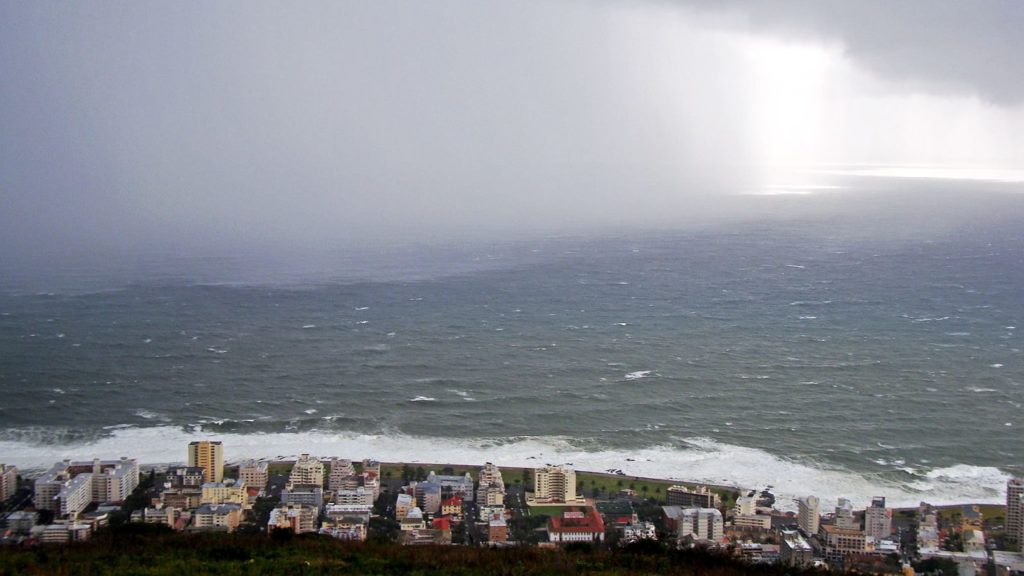The South African Weather Service (SAWS) has just issued one of the most entertaining and fact-heavy press releases you’ll likely read this year.
Issued on Friday, it’s loaded with statistics regarding Cape Town’s rainfall probability beyond April, and flames for the Western Cape Premier Helen Zille.
No ad to show here.
This is seemingly a response by SAWS, after Zille appeared on BBC Newsnight Thursday evening noting that “the experts can’t predict anything anymore”.
“The South African weather services have told me their models don’t work anymore in an era of Climate Change… the experts can’t predict anything anymore”- Premier of the Western Cape @HelenZille tells #newsnight pic.twitter.com/U8fVEv5UUy
— BBC Newsnight (@BBCNewsnight) January 24, 2018
SAWS slams Helen Zille
In the statement, SAWS called out Zille’s “disingenuous and extremely opportunistic” accusations regarding the service’s alleged incorrect weather predictions and inadequate climate “models… in an era of climate change”.
“SAWS has had discussions with the Premier and respectfully requested her to refrain from casting aspersions on the work of the Service,” explained SAWS.
Latest Media release: Forecasts under current drought conditions in Western Cape. pic.twitter.com/xK4wRB43iU
— SA Weather Service (@SAWeatherServic) January 26, 2018
“The Weather Service has furthermore offered the Premier access to all weather information and resources to enable her to speak from a position of knowledge rather than speculation.
“Now it seems this offer was not taken up.”
SAWS then dips into the likelihood of rainfall in Cape Town this year.
It’ll be another dry autumn for Cape Town
Noting that cold fronts between April and September provide the city with some 77% of its annual average 820mm rainfall, Cape Town’s drought has been exacerbated by two remarkably dry years in a row.
2017 was the driest year since 1921, with SAWS recording just 499mm of rainfall. 2015 was the second-driest, with totals barely topping 550mm.
SAWS however rubbished the notion that these low figures are indicative of a “drying trend”, citing 2013 and 2014’s rainfall figures of 1112mm and 853mm respectively.
But that’s where the good news stops and the mathematics begins.
“[I]t is extremely unlikely that rainfall totals will exceed 150mm for the months of January, February and March 2018, since it never happened in history,” postulated SAWS.
“For April 2018, however, there is a 44% possibility for the monthly rainfall total to fall in the 51-100mm range, while there is a 58% possibility that rainfall totals for April 2018 will not be higher than 100mm.”
SAWS also claimed that Autumn will remain a mostly dry season for Cape Town, with no notable rainfall forecast for the next two weeks in the city.
It did not however speculate on the latter half of the year.
Finally, SAWS addressed Helen Zille once more:
Blaming the weather, or climate and the Weather Service is a cop-out for policy inaction and ineptitude in implementation of multidisciplinary research and reports that have long pointed to the water challenge in the country, the Western Cape and in Cape Town.
Zille responded to the SAWS’s press release on Twitter, attaching a picture of one of the Service’s forecast slides.
“This is 1 of the worrying slides the SA Weather Service showed us in an open and honest briefing about what rainfall to expect in the run-up to Day Zero,” she tweeted late Friday.
“Where the map is white, they cannot predict. They said: Climate change has destroyed predictability of old forecasting models.”
This is 1 of the worrying slides the SA Weather Service showed us in an open and honest briefing about what rainfall to expect in the run-up to Day Zero. Where the map is white, they cannot predict. They said: Climate change has destroyed predictability of old forecasting models. pic.twitter.com/dFQ2aydYSU
— Helen Zille (@helenzille) January 26, 2018
“I wasn’t blaming the SAWS,” she wrote in a later tweet.
“It is perfectly acceptable not to be able to predict weather during an era of climate change. This is a reflection of the seriousness of climate change. How could anyone read anything else into what I said?”
This isn’t the first time Zille has landed herself in hot water.
The Premier on Wednesday retweeted a fake news claiming that Minister of Home Affairs Ayanda Dlodlo referred to Cape Town as its own country. She later deleted the tweet and apologised.
At the time of writing, dam levels across Cape Town remain below 28% full, with Day Zero set for 12 April 2018.
Update: This article has been updated to include a response from Helen Zille.
Feature image: warrenski via Flickr (CC BY-SA 2.0, resized)
